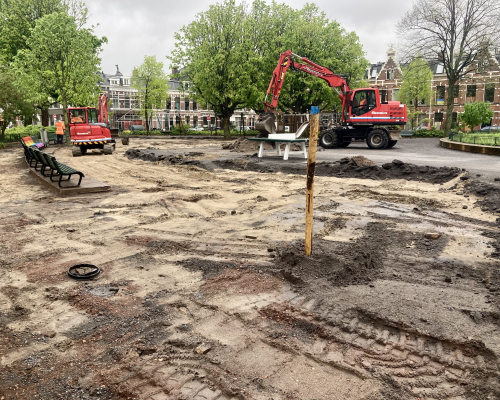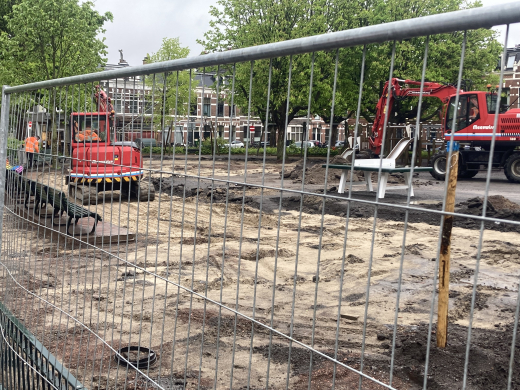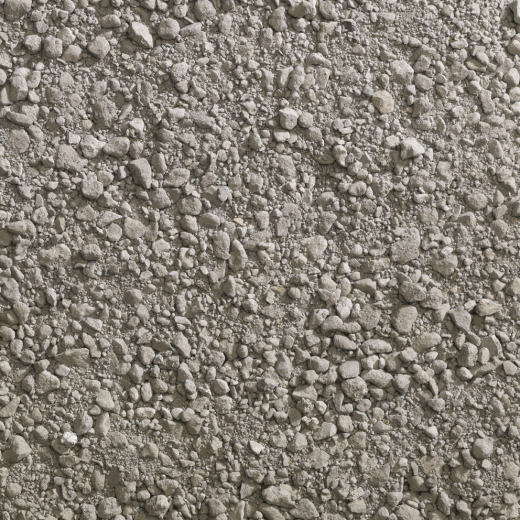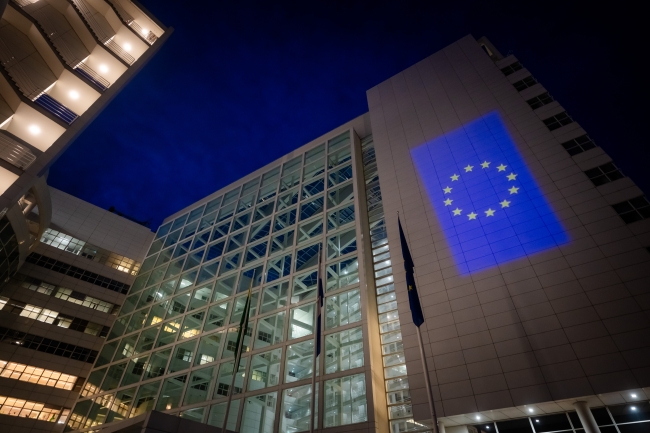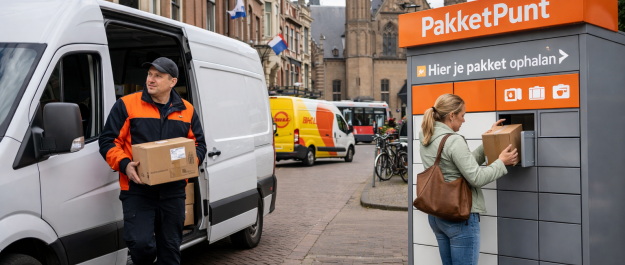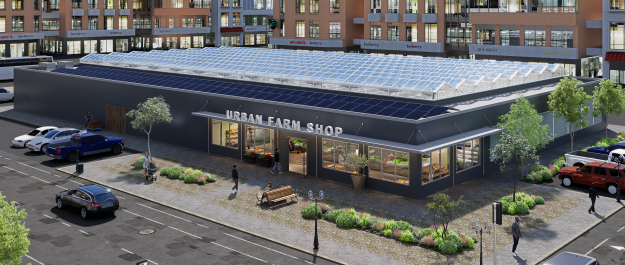The Hague has become the first city in the Netherlands to ban the use of steel slag in public space. The material, a by-product of steel production, has long been sold under the name Duomix and widely used in roadbuilding and other construction projects across the country. From now on, The Hague no longer allows these products to be applied in any top layer, and the city will phase them out entirely, even in deeper ground layers where there is no direct contact.
Duomix
Like many municipalities, The Hague used Duomix for decades. Their application seemed practical and sustainable at first, but growing evidence shows that steel slag can release hazardous substances, including heavy metals, into soil and groundwater. In some cases, fine dust particles can also enter the air, raising concerns for public health.
Koningsplein The Hague
The turning point came at Koningsplein, where children playing in the local playground experienced respiratory problems. After complaints from residents, the municipality investigated the material beneath the playground and decided to remove it immediately. Alderman Robert Barker subsequently introduced a citywide ban on its use.
“I have been advocating for many years to end the use of steel slag. Its negative effects on health are well known, and our residents deserve to be protected from these risks. With this ban, The Hague is taking responsibility and showing that public health and the environment cannot be compromised.”
Call for nationwide ban
Recent investigative reporting by platform Investico revealed that steel slag is present at 216 locations across the Netherlands, far more than previously known. Many of these locations were never officially registered. While Tata Steel produces much of the slag used nationally, this is far from a Dutch-only problem: similar environmental issues have been identified in other European countries and worldwide.
Examples of health and environmental damage have already come to light. In Hellevoetsluis, horses developed lung disease and residents reported nosebleeds and breathing difficulties. Experts believe these symptoms were linked to caustic dust from steel slag. In other areas, monitoring has shown leakage of heavy metals into groundwater and ditches, posing risks to ecosystems and drinking water.
Steel slag
Duomix is widely applied in Dutch road construction. It is a mixture of LD steel slag and granulated blast furnace slag, and is supplied in different grain sizes (0–8 mm, 0–22 mm, 0–31.5 mm). Comparable products, such as BGS-base or Koersfietspaden (KFP) mix, also contain steel slag. Some construction materials only partially consist of Duomix. Across the Netherlands, Duomix is primarily used in two ways:
- As semi-paving, in a 10–15 cm layer on a sand bed, commonly used for pedestrian and cycling paths in parks, cemeteries and nature areas.
- As a foundation layer beneath asphalt, tiles or paving bricks, for example in cycle paths, access roads to residential areas, through-roads and even heavily loaded industrial sites.
In both applications, a properly installed layer of Duomix eventually hardens. Yet the long-term environmental and health risks have become increasingly evident.
Read more
Letter to the Chair of the Committee on the Living Environment
Original letter from Robert Barker to the Chair of the Committee on the Living Environment. Municipality of The Hague.

Hazardous steel slag present in at least 216 locations; Twice as many as expected
There are at least 216 locations in the Netherlands where steel slag has been used, NU.nl and Investico found after researching tips from readers. That is nearly twice as many as the 115 locations their first investigation revealed.
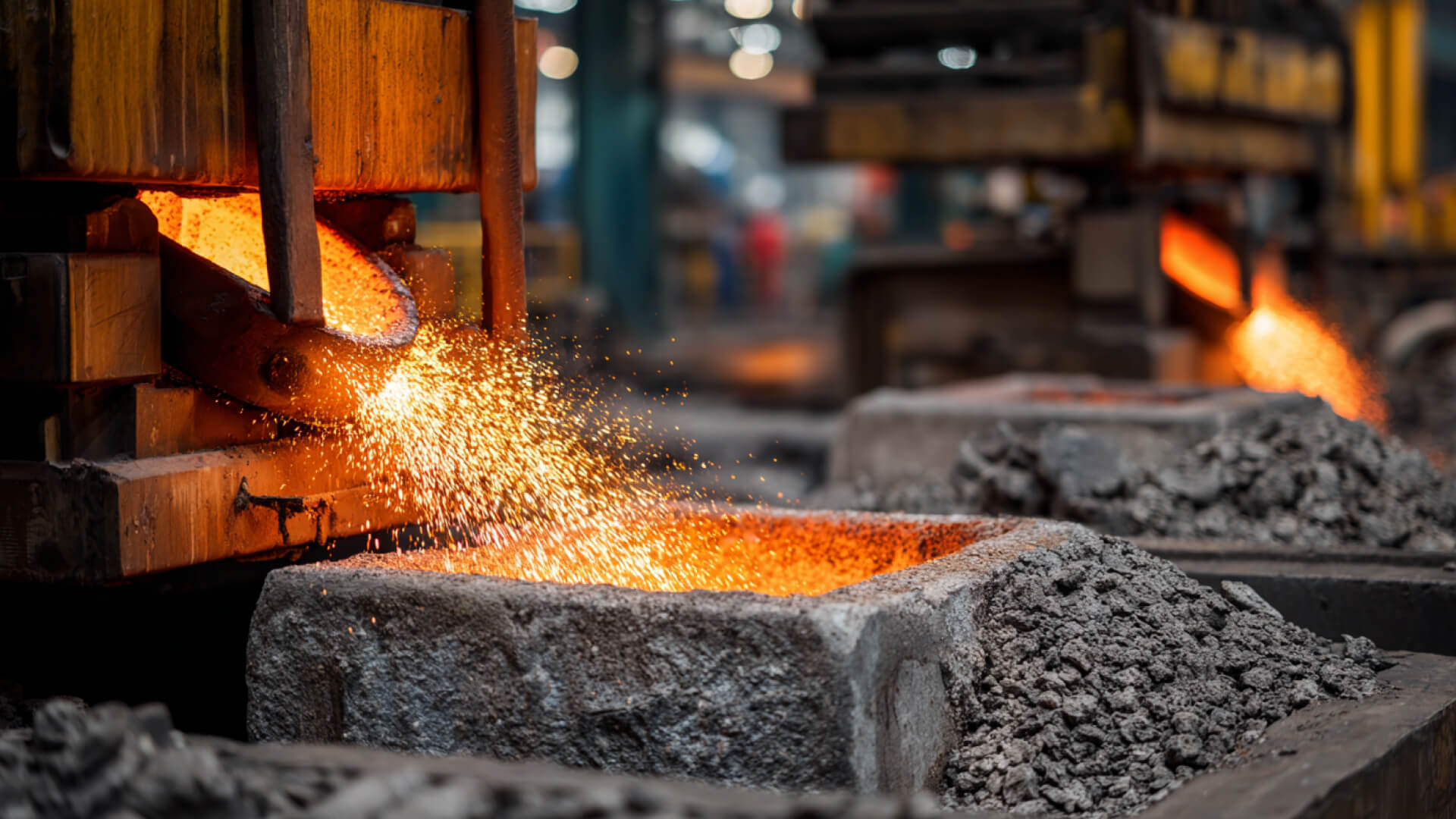
Netherlands Enacts Temporary Ban on Steel Slag Applications Over Safety Risks
Dutch government imposes ban on LD/ELO steel slag applications due to health and environmental risks. Learn how this impacts the circular economy.
